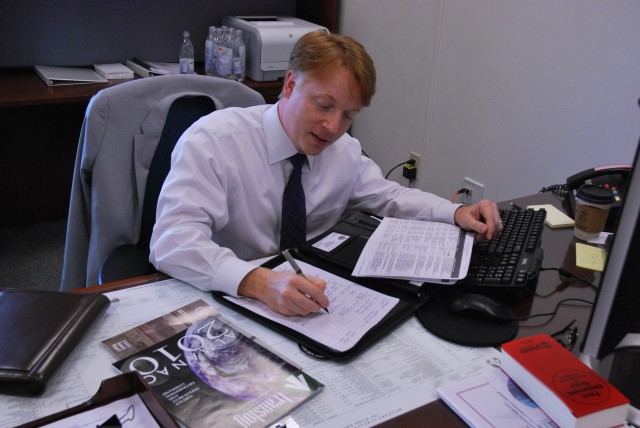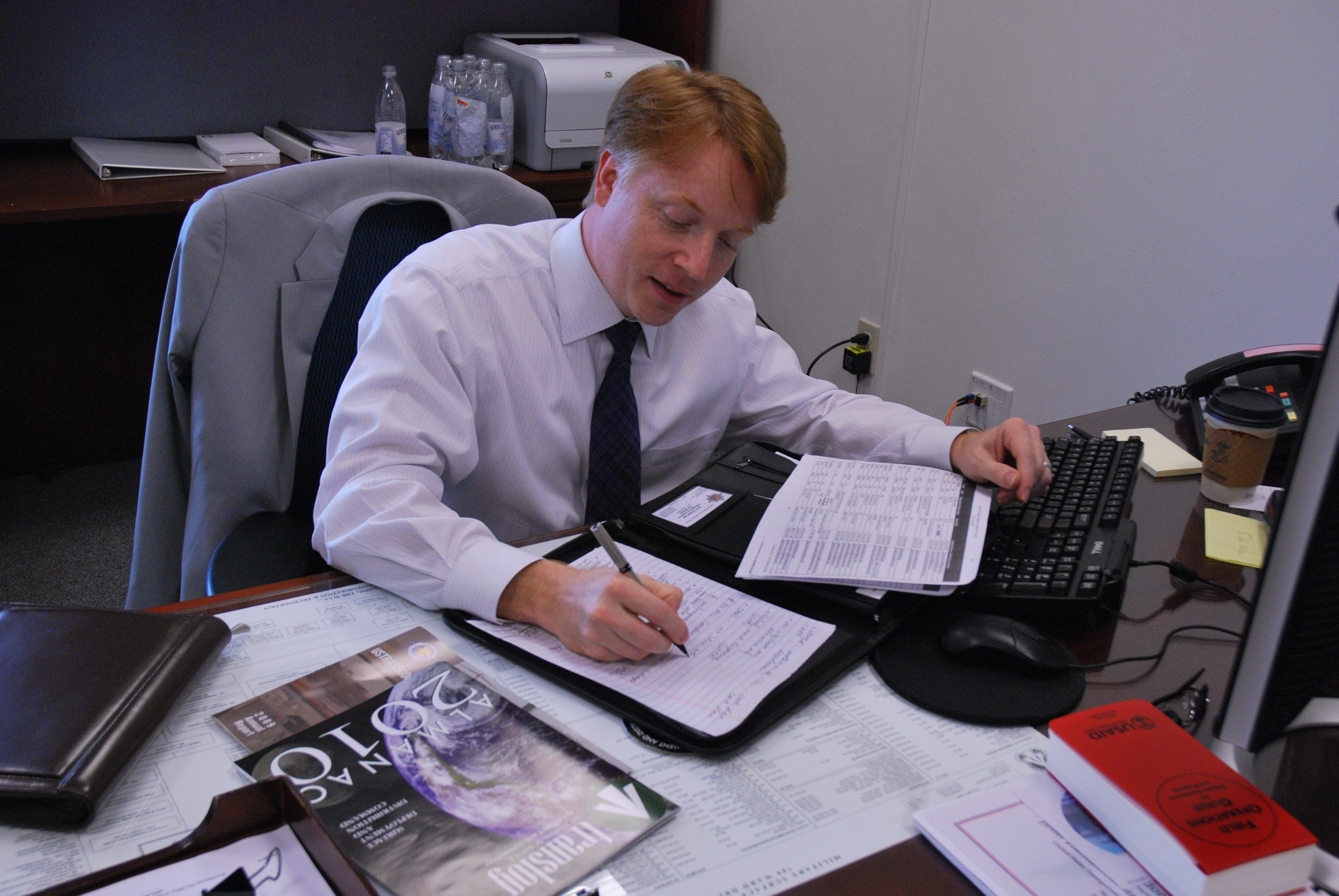
Surface Deployment and Distribution CommandAca,!a,,cs missions extend to countries with diverse political systems, each with its own rules and customs. On any given day, SDDC may be responsible for more than 1,000 trucks, 10 trains and 35 ships moving more than 1,000 shipments of DOD household goods, 200 privately owned vehicles, 500 container shipments and 1,600 shipments of domestic freight all around the world.
With such a global reach, it is important to keep an eye on the political implications of any action.
To this end, SDDC has added to its staff the commandAca,!a,,cs first Foreign Policy Advisor (POLAD), Mr. Gordon Church.
As POLAD for SDDC, Church will assist the commander by offering advice during complex operations such as humanitarian assistance, natural disasters and regional conflicts. His duties will include anticipating diplomatic obstacles, suggesting alternative courses of action, identifying opportunities for enhanced security cooperation, and facilitating contacts with foreign government and private sector officials.
Church previously worked at the U.S. Embassy in Kinshasa, the Democratic Republic of the Congo, where he served as a political military officer. Before this assignment, Church said that he has been traveling the world for years.
"In fact," he said, "I don't think I've even lived in one country for more than two years in the last 20."
His previous stations include posts in Berlin, Thailand, Korea, India and many other countries around the world. Church said he liked many of his posts, but his favorite was Thailand.
"We really enjoyed Thailand. The people were nice and the food was good," said Church.
As a foreign relations professional and frequent traveler, Church speaks five languages. Over the course of his work, he has learned French, German, Korean and Chinese.
"And some people believe I speak English," he added.
Church said he is excited to work with SDDC because he is a former Soldier himself. He served in the 2nd Infantry Division, and then as a battle captain working intelligence in Korea.
"It's a great group of people," he said. "And it's a natural fit for me."
The POLAD program is a joint venture between DOD and the State Department designed to let State Department employees work closely with DOD commands and provide advice and information on the political side of military actions.
POLADs are recruited, assigned and paid by the State Department, but report directly to the commander of the command they work for. They are chosen from a select pool of experienced Senior Foreign Service officers.
Since its inception in 1957, the POLAD program has played a vital role in setting policy related to national security and the political effects of military actions on U.S. foreign relations. However, Church said there has been a recent push to fill vacant POLAD positions and open up new ones, increasing the scope of the program.
"There were a lot of positions sitting vacant in the past," said Church. "And some commands didn't even have the position to fill."
With the important role that SDDC plays in DOD operations around the world, and the increasing importance of civilian and military cooperation, it was recognized by SDDC's leadership that having a POLAD would be of great benefit to the command.
"The work here is the most interesting, so we had a couple of bidders for the position," said Church.

Social Sharing